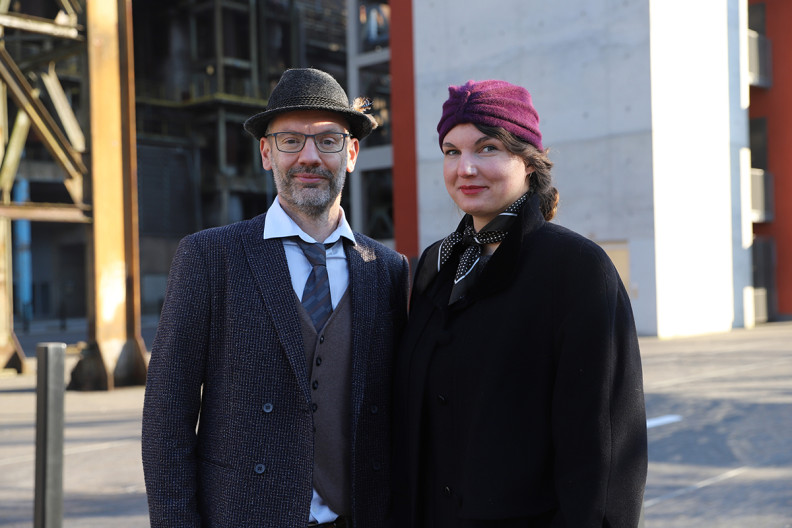The EU Prize for Citizen Science recognises outstanding citizen science initiatives that enact change, expand knowledge and address social, political, cultural and environmental challenges through the involvement of citizens. The international jury for the prize described HistorEsch as follows: “The project democratizes city history by engaging citizens in co-creating narratives via murals, audio tours, and exhibitions. It involves the community throughout, bridging historical gaps and deepening heritage connections.”
“HistorEsch: Citizen History Activities in the city of Esch-sur-Alzette” is a collaborative, participatory project about the history of Esch-sur-Alzette (Luxembourg), conducted by Prof. Thomas Cauvin and Dr. Joëlla van Donkersgoed from the Luxembourg Centre for Contemporary and Digital History (C²DH), a research centre at the University of Luxembourg. The project aims to co-create and share knowledge about the past using transdisciplinary, open and citizen science methods to actively engage the public during each phase of the project and promote sustainable collaboration between academia, citizens, institutions and other stakeholders.
The innovative character of HistorEsch is demonstrated in the production of a mural, an audio tour, an exhibition and a digital community (the FL’ESCH Back Facebook group). The interdisciplinary fresco project combined artistic practices with citizen science to co-create a mural at a social housing complex. The audiotour innovated the north-American project HearHere by exploring the possibilities to reach a multilingual society with local oral histories. The co-creation process for the exhibition allowed to test and practice sharing authority. All project’s outputs are publicly freely accessible aiming to create a lower threshold to engage with - and learn about history. As Thomas Cauvin explains “We do history in the street, in the public space, in museums, on the TV, on radio. It was always important for me to share history with people.”
In its statement, the jury recognises this social impact of the project in Luxembourg: “With over 2,000 active citizens (5.9% of the population), [the project’s] alignment with European Capital of Culture status signals broader policy impact. It fosters diversity and collaboration, involving citizens, institutions, associations, and researchers. The Citizen Historian Circle ensures varied perspectives, while European partnerships and workshops highlight its broader scope.”
A central part of the social impact of our collaborative projects was the qualitative engagement with the citizens and the new bridges of trust built between academia, cultural institutions, and local residents. “By focusing on the voices of the public, we empower them and show that history really matters in the public space” highlights Joëlla van Donkersgoed. Not only did the public learn about (hidden) histories of their city, but they have also become empowered to contribute to historical research, which is why the project was awarded an Honorary Mention of the EU Prize for Citizens Science.
The HistorEsch project is part of Public History as the new Citizen Science of the Past (PHACS), a project funded by the Luxembourg National Research Fund ATTRACT fellowship for Thomas Cauvin. Thomas and Joëlla created the HistorEsch activities in close collaboration with Nuit de la Culture, Kulturfabrik, and Ariel Beaujot and Michelle Hamilton who are the drivers behind HearHere.
More about the EU Prize for Citizen Science: https://calls.ars.electronica.art/2024/prix/winners/11600/



